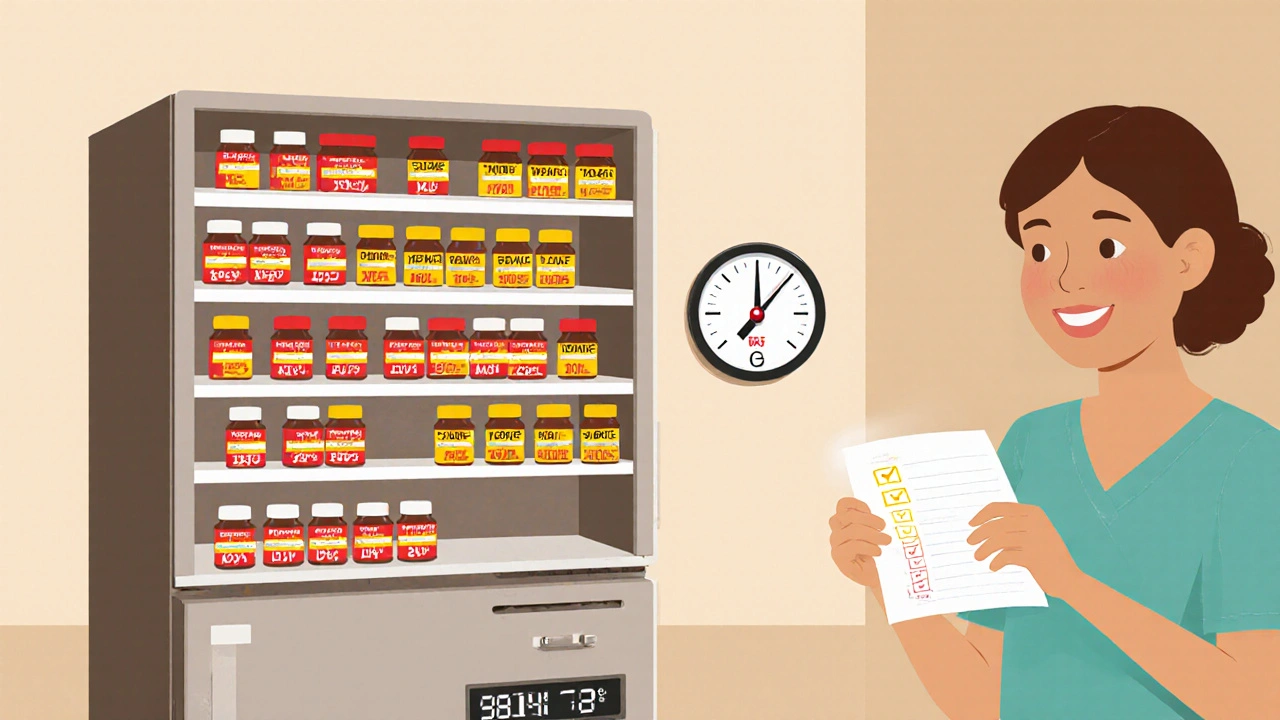Reduce Pharmaceutical Waste: Smart Ways to Cut Down on Unused Medications
When you reduce pharmaceutical waste, the practice of minimizing unused, expired, or improperly disposed medications to protect health and the environment, you’re not just saving money—you’re helping prevent contamination, accidental poisonings, and environmental harm. Every year, millions of pills end up in landfills, flushes, or drawers, often because people don’t know how to manage them properly. This isn’t just a global issue—it’s something you can fix at home with simple steps.
One major cause of waste is medication expiration, the point at which drugs lose potency or become unsafe to use. Many people keep old prescriptions "just in case," but studies show that most medications don’t suddenly turn dangerous after their expiration date—they just stop working as well. The real risk comes from storing them wrong: heat, moisture, and light can break them down faster. That’s why creating a medication storage, the practice of keeping drugs in cool, dry, dark places to maintain effectiveness routine matters. A quick monthly check of your medicine cabinet can stop you from taking ineffective pills or accidentally using someone else’s drugs.
Then there’s drug disposal, the safe and legal way to get rid of unused or expired medications. Flushing pills or tossing them in the trash isn’t just bad for the planet—it’s often illegal. Many pharmacies and local health departments offer take-back programs. If those aren’t available, mixing pills with coffee grounds or cat litter in a sealed container before throwing them away reduces the chance of misuse or environmental harm. And don’t forget: if you’re switching medications, don’t just stockpile the old ones. Talk to your pharmacist about how much you really need.
Generic medications save money, but generic medication safety, the reliability and quality of non-brand-name drugs can be a concern if manufacturing defects go unnoticed. Capped tablets, inconsistent dosing, or contamination can lead to wasted pills and real health risks. That’s why tracking your meds—checking for odd smells, discoloration, or crumbling pills—is part of reducing waste and staying safe.
Below, you’ll find real-world guides on how to track expiration dates, handle leftover antibiotics, avoid dangerous interactions from old meds, and even choose the right storage solutions. No fluff. No theory. Just what works.
Learn practical ways to prevent medication waste while keeping drugs within their safe expiration dates. Save money, reduce environmental harm, and help patients with simple inventory and storage habits.
Nov, 19 2025

